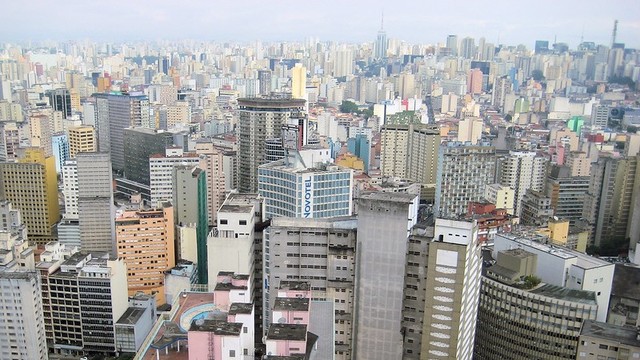A just recovery from COVID-19: young people from eight African cities speak out
As cities across Africa start to lift pandemic restrictions, young people are hoping for a more equitable future. We report on a project that captured the perspectives of young people living in informal settlements in eight African cities.


Know Your City TV Zambia work with communities in Zingalume, Lusaka, Zambia (Photo: Loyd Siwila/SDI and KYCTV)
Urban responses to the COVID-19 pandemic remain at a critical juncture. In sub-Saharan African cities, even as COVID-19 measures lift and ‘normal life’ resumes, interventions are still needed to address the enduring legacies of both the disease and responses to it.
Some city governments are shifting policies towards more sustained support for livelihoods, social protection systems and greater social inclusion. This creates opportunities to build resilience to multiple risks and shocks, particularly in informal settlements.
Almost 60% of Africa’s population is under 25: its cities really are ‘cities of youth’. For young people, living in informal settlements during the pandemic brought distinctive concerns and exacerbated pre-existing structural inequalities around access to services and infrastructure.
Many impacts were more pronounced than the direct effects of COVID-19: the loss of informal and formal employment opportunities, loss of educational opportunities and a loss of mobility, leading to social isolation and poor mental health. These were combined with exclusion from subsidies, loans and governance structures at all levels.
From 2020 to 2021, young people in youth affiliates of Slum Dwellers International in Lagos, Freetown, Nairobi, Lusaka, Harare, Johannesburg, Gqeberha and Cape Town documented their experiences of the pandemic as part of an Arts and Humanities Research Council project led by the University of Warwick. Through video diaries and interviews, and focus group discussions, they communicated their perspectives on the pandemic and how to support their recovery and future resilience.
This work allows us to reflect from a youth perspective on a vision for transformative urban recovery that IIED produced in collaboration with urban stakeholders in 2020-21.
The IIED framework encompasses principles around governance for transformative recovery that addresses multiple risks. It includes decentralising finance; upholding rights and promoting social inclusion, including institutionalising the co-production of basic services; and supporting holistic interventions, such as climate-change adaptive social protection.
A call for inclusion
Marginalised by age as well as by living in informal settlements, these young citizens passionately echoed calls for action on their social and political exclusion.
First, they supported the view advocated by IIED that community-based organisations are potentially more inclusive of marginalised groups, including youth.

Youth Federation members in Zambia advocate for inclusion in the development process (Photo: Micheal Chanda/SDI and KYCTV)
They cited examples where grassroots organisations had provided invaluable support for young people, including training, mental health awareness-raising, and help with medicines and rent.
In one example of a single-purpose intervention with multiple benefits, the Kenyan government initiative Nyumba Kumi, a form of community policing, provided young people in Nairobi with opportunities to get involved in community-level decision making about COVID-19 responses.
Practicing participation in local governance
Second, young people requested enabling environments where their voices can be truly heard by those in power. As one youth in Lagos said: "The practice of participation matters."
He noted that local councillors were supposedly representing the people, but contacting them was difficult – and often unrewarding: “Even when you meet them, they will just nod their head as if they've heard you, but most times they act to benefit themselves in one way or the other."
Participants suggested requiring the representation of young people on government and civil society bodies and creating dedicated platforms for young people, alongside strengthening existing youth collectives and federations.
Using social media and bringing forums online could make them more accessible. Young participants want training in local governance and advocacy, including workplace and mentoring opportunities for leadership development.
Opportunities for community service and employment
Young people played critical roles in their communities during the pandemic as students, entrepreneurs, caregivers, volunteers, breadwinners and local knowledge experts. They say their capacities could support social inclusion and holistic solutions, both for themselves and their communities.
Some already work as volunteers, carrying out government surveys and registration drives, and argued they could do more via community involvement, including public health awareness-raising or driving mobile health clinics.
However, this should be paid work that supports their livelihoods – a principle that could be enshrined in co-produced initiatives for basic services and infrastructure. Co-producing services and infrastructure with young people brings distinct concerns, including providing mental health support in ways that avoid fear and stigma, and providing education through multiple means, including radio, TV and social media.
Finally, for young people caught between a lack of formal employment and the increased precarity of informal work, creating livelihood opportunities is paramount. This can tackle multiple risks alongside structural injustices.
Participants suggested that investing in skills development could include training on solar installation and green technologies, and on cultivating vegetable gardens for food security and resilience. Such initiatives need to be more sustainable and more accessible, however, if they are to have real impact.



